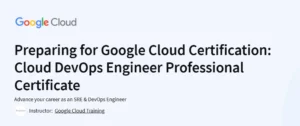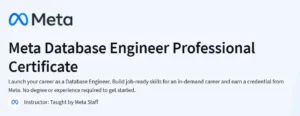What will you learn in Blockchain Developer Certification Course
Grasp core Blockchain principles and trace the evolution from Bitcoin to enterprise platforms like Ethereum, Hyperledger, and MultiChain
Develop, compile, and deploy smart contracts in Solidity using Remix, Truffle, and Web3.js on test networks
Stand up your own private Blockchain with MultiChain and Hyperledger Composer for permissioned ledgers
Understand consensus mechanisms (PoW, PoS) and secure transactions via cryptographic hashing and Merkle trees
Integrate Blockchain with real-world applications: build a DApp, interact with wallets, and explore use-cases in finance, supply chain, and governance
Program Overview
Module 1: Origin & Working of Blockchain
⏳ 2 hours
Topics: Current financial system flaws, distributed systems, blockchain fundamentals, properties, and real-world use cases
Hands-on: Diagram a block structure, simulate transaction flows, and evaluate immutability scenarios
Module 2: Cryptocurrency & Bitcoin Platform
⏳ 3 hours
Topics: Bitcoin history, wallets, key management, transaction lifecycle, mining, and consensus via Proof of Work
Hands-on: Use a local Bitcoin node to create and broadcast transactions; analyze blocks with a block explorer
Module 3: Introduction to Ethereum & Solidity
⏳ 4 hours
Topics: Ethereum architecture, accounts vs. contracts, Gas model, Solidity syntax and data types
Hands-on: Write, compile, and deploy simple “HelloBlockchain” contracts in Remix; monitor Gas costs
Module 4: Advanced Solidity & DApp Development
⏳ 4 hours
Topics: Inheritance, libraries, events, modifiers, error handling, and security best practices
Hands-on: Develop a multi-function DApp with Truffle/Hardhat, integrate Web3.js for front-end interactions
Module 5: Hyperledger Composer & Private Blockchain with MultiChain
⏳ 3 hours
Topics: Permissioned ledger concepts, Hyperledger network setup, Composer modeling, MultiChain installation/configuration
Hands-on: Model a supply-chain business network in Composer; launch a MultiChain node, create assets, and manage permissions
Module 6: Consensus Mechanisms & Cryptography
⏳ 2 hours
Topics: PoW vs. PoS vs. PBFT, Merkle proofs, digital signatures, key algorithms (ECDSA, SHA-256)
Hands-on: Implement a Merkle tree in code and verify inclusion proofs; benchmark hashing functions
Module 7: Real-World DApp Project
⏳ 4 hours
Topics: End-to-end DApp architecture, off-chain data integration, Oracles, IPFS storage
Hands-on: Build and deploy a decentralized voting or supply-chain tracking DApp with React front end and Infura/Ganache backend
Module 8: Industry Use-Cases & Future Trends
⏳ 1.5 hours
Topics: Tokenization, DeFi primitives, NFT standards, enterprise adoption, regulatory considerations
Hands-on: Prototype a simple ERC-20 token; explore minting and trading on a testnet DEX
Get certificate
Job Outlook
Blockchain Developer: $100,000–$160,000 /yr — design smart contracts, DApps, and blockchain architectures
Blockchain Architect: $120,000–$180,000 /yr — lead enterprise blockchain integration and network design
Smart Contract Engineer: $110,000–$170,000 /yr — focus on secure contract development and audits
Demand spans fintech, supply-chain, healthcare, and government sectors, with global blockchain roles growing at 50% annually
Specification: Blockchain Developer Certification Course
|
FAQs
- A basic understanding of programming (like Python, JavaScript, or C++) is helpful but not mandatory.
- Familiarity with data structures (arrays, linked lists, hash functions) gives you a strong foundation.
- Knowing basic networking and database concepts helps understand distributed ledger technology.
- An interest in financial systems, supply chains, or digital contracts adds valuable context.
- Non-technical learners can start with blockchain fundamentals before diving into smart contracts.
- Traditional apps rely on centralized databases, while blockchain apps run on decentralized ledgers.
- Data immutability means you can’t simply “edit” a record; you create a new transaction instead.
- Security and cryptographic hashing replace standard authentication systems.
- Blockchain development involves consensus mechanisms (Proof of Work, Proof of Stake) rarely seen in regular coding.
- Testing and deployment take place on testnets rather than traditional staging servers.
- Blockchain Developer – building decentralized applications (DApps) and smart contracts.
- Blockchain Solution Architect – designing enterprise-level blockchain systems.
- Smart Contract Auditor – reviewing code for security vulnerabilities and optimization.
- Crypto Product Manager – bridging blockchain tech with business applications.
- Blockchain Research Analyst – studying protocols, scalability, and emerging trends.
- Learn Ethereum and Solidity for smart contract development.
- Explore Truffle Suite or Hardhat for testing and deploying DApps.
- Use Ganache to simulate local blockchain environments.
- Understand IPFS (InterPlanetary File System) for decentralized storage.
- Familiarize yourself with Metamask, Remix IDE, and web3.js libraries.
- In supply chains, it ensures product traceability and authenticity.
- In healthcare, it secures patient data and medical records.
- In real estate, it digitizes property ownership and smart contracts.
- In education, it enables tamper-proof certification and credentialing.
- In government, it improves transparency in voting and public records.





